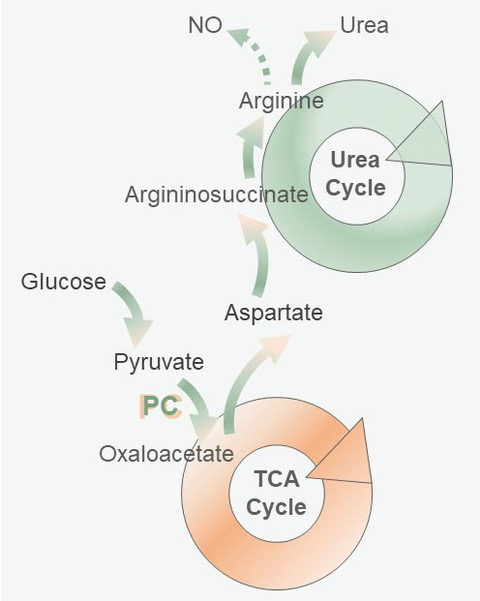
Chronic inflammation is linked to diverse diseases. While the immune cell component of inflammation has been well-studied, cell-intrinsic mechanisms that determine the response of target cells to inflammation are incompletely understood. In recent studies published in Nature Metabolism, the Danial lab identified a connection between mitochondrial pyruvate handling and arginine metabolism through the urea cycle as a cell-intrinsic anti-inflammatory mechanism. They found that pyruvate entry into the TCA cycle via pyruvate carboxylase (PC) leads to increased aspartate synthesis, which supports the aspartate-argininosuccinate shunt to fuel ureagenesis from arginine. This in turndiminishes arginine use for generation of nitric oxide (NO), a chief mediator of inflammatory cytotoxicity. The studies also showed that PC-directed ureagenesis can be regulated by glucose and tested the relevance of this metabolic mechanism in pancreatic beta-cells undergoing inflammation stress in diabetes. The ureagenic effect of PC sheds new insights into metabolic biology of this enzyme and may have implications for diseases where alterations in PC are observed, including diabetes, cancer and inborn errors of metabolism.